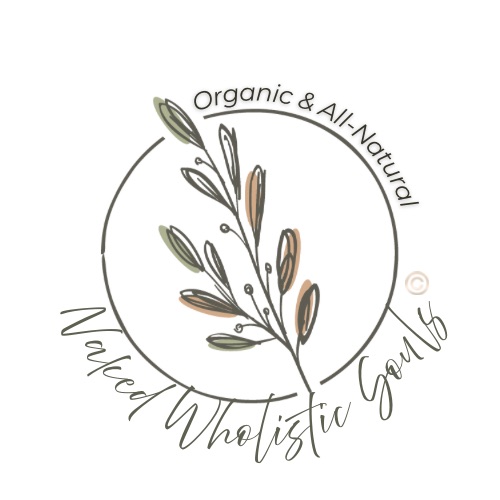The Importance of Holistic Self-Care in Modern Living
- Audrey Linta

- Aug 11
- 4 min read
In today's fast-paced world, taking care of oneself goes beyond just physical health. Holistic self-care is about nurturing the mind, body, and spirit in a balanced way. It recognizes that all parts of our being are interconnected and that true wellness comes from addressing each aspect thoughtfully. This approach helps us manage stress, improve our overall well-being, and live more fulfilling lives.
Understanding Holistic Self-Care
Holistic self-care means looking at health from a broad perspective. Instead of focusing solely on symptoms or isolated issues, it encourages us to consider emotional, mental, physical, and spiritual needs. For example, someone feeling anxious might benefit not only from relaxation techniques but also from improving their diet, getting regular exercise, and practicing mindfulness.
Some key components of holistic self-care include:
Physical care: Eating nutritious foods, exercising regularly, and getting enough sleep.
Emotional care: Expressing feelings, seeking support, and practicing self-compassion.
Mental care: Engaging in stimulating activities, managing stress, and setting healthy boundaries.
Spiritual care: Connecting with nature, meditation, or exploring personal beliefs.
By integrating these elements, holistic self-care supports a more resilient and balanced lifestyle.

Practical Ways to Incorporate Holistic Self-Care
Incorporating holistic self-care into daily life can seem overwhelming at first, but small, consistent steps make a big difference. Here are some practical tips to get started:
Create a morning routine: Begin your day with activities that nourish your mind and body, such as stretching, journaling, or drinking herbal tea.
Prioritize sleep: Aim for 7-9 hours of quality sleep by establishing a calming bedtime routine and limiting screen time before bed.
Move your body: Find physical activities you enjoy, whether it’s walking, yoga, or dancing, and make them a regular part of your week.
Practice mindfulness: Spend a few minutes each day focusing on your breath or observing your surroundings to reduce stress and increase awareness.
Nourish your spirit: Engage in activities that bring you joy and meaning, such as spending time in nature, reading inspiring books, or connecting with a community.
Remember, holistic self-care is personal. What works for one person may not work for another. Experiment with different practices and listen to your body’s signals.

The Role of Nutrition and Physical Health
Nutrition plays a vital role in holistic self-care. Eating a balanced diet rich in whole foods supports not only physical health but also mental clarity and emotional stability. For example, omega-3 fatty acids found in fish and flaxseeds can improve brain function and mood regulation.
Physical health is equally important. Regular exercise helps reduce anxiety, improve sleep, and boost energy levels. It also promotes the release of endorphins, natural mood enhancers. Even simple activities like walking or stretching can have significant benefits.
To optimize your physical self-care:
Plan meals with a variety of colorful fruits and vegetables.
Stay hydrated throughout the day.
Incorporate strength, flexibility, and cardiovascular exercises.
Schedule regular health check-ups.
Taking care of your body lays a strong foundation for holistic well-being.

Emotional and Mental Wellness in Holistic Self-Care
Emotional and mental health are often overlooked but are crucial components of holistic self-care. Managing stress, processing emotions, and maintaining a positive mindset contribute to overall wellness.
Some effective strategies include:
Journaling: Writing down thoughts and feelings can provide clarity and emotional release.
Therapy or counseling: Professional support helps address deeper issues and develop coping skills.
Setting boundaries: Learning to say no protects your energy and reduces overwhelm.
Social connections: Spending time with supportive friends and family fosters a sense of belonging.
Mindfulness and meditation practices also help calm the mind and improve focus. Apps and online resources can guide beginners through these techniques.
By nurturing your emotional and mental health, you build resilience against life’s challenges.
Embracing Spiritual Self-Care
Spiritual self-care is about finding purpose and connection beyond the material world. It can be practiced through meditation, prayer, spending time in nature, or engaging in creative activities that inspire you.
This aspect of self-care helps cultivate inner peace and a sense of belonging. It encourages reflection on values and life goals, which can guide decision-making and personal growth.
To deepen your spiritual self-care:
Dedicate time for quiet reflection or meditation daily.
Explore new spiritual or philosophical teachings.
Volunteer or participate in community service.
Spend time outdoors appreciating the natural world.
Spiritual self-care complements physical and emotional practices, creating a well-rounded approach to health.
Moving Forward with Holistic Self-Care
Adopting holistic self-care is a journey, not a destination. It requires patience, self-awareness, and a willingness to try new things. Start by identifying areas where you feel out of balance and choose one or two practices to focus on.
For those seeking guidance, resources like naked wholistic souls offer valuable insights and support for embracing a holistic lifestyle.
Remember, self-care is not selfish. It is an essential investment in your well-being that benefits every aspect of your life. By caring for your whole self, you create a foundation for health, happiness, and resilience in the modern world.







Comments